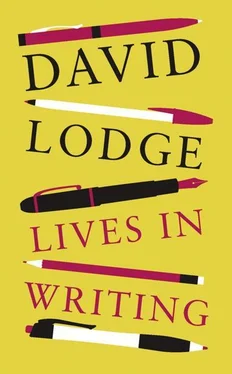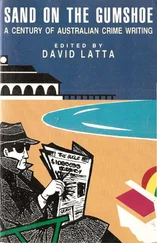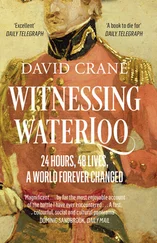One can understand Larkin’s sore feelings about the irony of his situation. There is always an element of rivalry in a friendship between artists in the same field, and Larkin found he had helped Amis to achieve a level of success and income neither of them had anticipated, and which was in painful contrast to the muted reception and sales of his own two published novels, Jill and A Girl in Winter . It was not coincidental that he never completed the third novel he had started before Lucky Jim was published. Basic differences of character and attitude between the two men which had previously been latent became overt as time went on, and relations cooled to the extent that contact ceased for some years in the 1960s, after which they were undemonstratively reconciled and resumed their correspondence, though not with the spontaneity and frequency of old.
In 2012 Richard Bradford, who had previously published biographies of both Amis (in 2001) and Larkin (in 2009), retraced the history of their relationship in The Odd Couple: The Curious Friendship between Kingsley Amis and Philip Larkin , drawing on Letters to Monica and unpublished letters by Amis, and adding a good deal of tendentious speculation of his own. But he is probably correct in suggesting that Larkin’s increasing eminence as a poet enabled him to overcome his envy of Amis’s success.
1 The Life of Kingsley Amis (2006).
2 Two items in Anthony Thwaite’s edition of Selected Letters (1992) throw interesting light on this poem. In a letter to Thwaite in March 1970, Larkin revealed that in an earlier draft the line ended: ‘could it be, Horatio?’ making the poem a letter from Hamlet to Horatio, ‘which may make better or worse sense, according to whether you think Horatio was a nicer chap than Hamlet or not’. He also explained what the poem ‘was meant to do. . to postulate a situation where, in the eyes of the author, his friend got all the straightforward easy girls and he got all the neurotic difficult ones, leaving the reader to see that in fact the girls were all the same, and simply responded to the way they were treated. In other words the difference was in the friends and not in the girls.’ There were in fact significant differences between the women that Larkin and Amis were respectively involved with, but undoubtedly it was their own different characters and temperaments that determined the patterns of their sexual lives. In January 1978 Larkin reread the poem and commented in a letter to Thwaite: ‘My reaction was that in the first place it wasn’t at all funny: very sad and true; in the second, that the “joke” was either too obvious or too subtle to be seen.’ For these and other reasons he concluded: ‘we’ll have to leave it to the posthumous volume.’ That was Anthony Thwaite’s edition of the Collected Poems (1988).
A TRICKY UNDERTAKING: THE BIOGRAPHY OF MURIEL SPARK
MURIEL SPARK PUBLISHED twenty-two novels in her lifetime, despite beginning relatively late at the age of thirty-nine, and at least half of them are classics by the only criterion that really matters — they invite and reward repeated rereading. She was arguably the most innovative British novelist writing in the second half of the twentieth century, extending the possibilities of fiction for other writers as well as for herself. Arriving on the English literary scene in the late 1950s, she challenged the aesthetic principles not only of the neo-realist novel of that decade, but also of the modernist novel from Henry James to Virginia Woolf, demonstrating a different style of story-telling we would learn to call postmodernist. She took the convention of the omniscient author familiar in classic nineteenth-century novels and applied it in a new, speeded-up, throwaway style to artfully contrived plots of a kind rare in twentieth-century literary fiction. Instead of hiding behind a character-narrator or cultivating a modernist ‘impersonality’, Spark’s authorial voice was up front, briskly summarising the characters and their actions, and shifting the temporal focus of the story — not with the deliberation of Joseph Conrad or Ford Madox Ford, but at dizzying speed, from present to past to future and back again, sometimes in a single paragraph. Solemn subjects, like guilt, religious faith and death, were dealt with in a bright and sparkling epigrammatic style. The supernatural, in the form of angels and devils, and the uncanny, like the untraceable telephone calls which remind the characters in Memento Mori that they must die, are apt to intrude disconcertingly into the modern secular world. She was, I believe, a liberating influence on a fertile generation of English women novelists that included Beryl Bainbridge, Fay Weldon, Alice Thomas Ellis and (in some of her work) Hilary Mantel. She herself had no obvious precursors, except perhaps Ivy Compton-Burnett. It is interesting to learn from Martin Stannard’s biography 1that Spark was in her formative years an enthusiastic reader of Compton-Burnett, whose work however has a much narrower range of themes and effects than her own.
A truly original writer is a very rare bird, whose appearance is apt to disconcert other birds and bird-watchers. I was beginning my own career as a novelist and critic when Muriel Spark began publishing her fiction: in the former capacity I was under the influence of the neo-realism of the 1950s and as a critic I revered the great modernists like Henry James, Conrad and Joyce. I was also interested in something called the Catholic Novel and had recently completed a thesis on the subject with concluding chapters on Evelyn Waugh and Graham Greene. Muriel Spark didn’t fit into any of these categories, and although she was a convert to the Roman Catholic faith, and publicly admired by Greene and Waugh, her take on it was very different from theirs. Reviewing The Prime of Miss Jean Brodie in 1961, I declared myself ‘beguiled. . but not really stirred or involved or enlightened’. It was some time before I recognised it as a masterpiece and tried to make amends with an extended appreciation of the novel in my book The Novelist at the Crossroads (1971).
There were, however, enough readers in the 1960s impressed by the wit, sharp observation and refreshing novelty of Spark’s narrative style to make her into a literary star quite quickly, especially in America. The New Yorker dedicated nearly a whole issue of the magazine to a slightly shortened version of The Prime of Miss Jean Brodie , only the second time it had conferred such an honour. Nevertheless (a key word in Spark’s own vocabulary, one she heard often in childhood from the lips of scrupulous Scottish matrons) there was nearly always a significant mutter of dissent and dissatisfaction audible in the general buzz of approbation that greeted each new work, and it grew in volume as she became more and more uncompromisingly experimental in form and content. Reviewing The Only Problem in 1984, Frank Kermode described her as ‘our best novelist’ but added: ‘Although she is admired and giggled at, I doubt if this estimate is widely shared. This may be because virtuosos, especially cold ones, aren’t thought serious enough. Another reason is that although we have a special niche for certain religious novels, Mrs Spark’s kind of religion seems bafflingly idiosyncratic.’ Martin Stannard quotes this shrewd observation and his meticulous biography helps us to fill out and understand its implications.
The history of this work is itself of interest. In 1992 Muriel Spark wrote an approving review of the second volume of Stannard’s biography of Evelyn Waugh and when he thanked her for it, she replied that she hoped she would be fortunate enough to find as sympathetic a biographer one day. Stannard tentatively offered his own services, and she invited him to visit her in Tuscany to discuss this ‘interesting idea’. Soon he was invited to write an authorised biography. No professional (or professorial) biographer could have resisted the opportunity, and he seized it, while wondering why a writer known for fiercely guarding her privacy should allow a total stranger to investigate her life without conditions. He was guaranteed independence, made free of a huge archive of her papers, and exhorted to ‘write about me as though I were dead’. Spark had just finished writing Curriculum Vitae , a memoir of her early life up to the publication of her first novel, and Stannard surmised that she resented the expenditure of time and energy required by this task, and decided to let someone else continue it while she got on with her creative work.
Читать дальше












